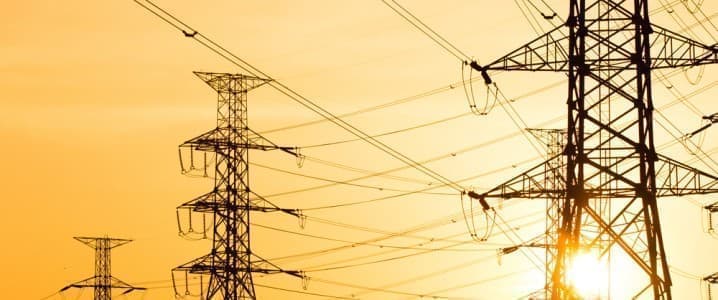Business
Azerbaijan’s Energy Market Reform Faces Public Discontent

Azerbaijan is undertaking a significant overhaul of its domestic heating and electricity markets, aiming to increase the share of renewable energy and implement liberalization measures. This ambitious initiative, however, is encountering considerable public discontent, primarily due to a lack of transparency and public engagement in the decision-making process.
In the spring of 2023, Azerbaijan’s parliament approved a series of laws that set the stage for tariff reform in the energy sector. These reforms, particularly concerning the establishment of utility rates, are being carried out with little public input. In a country where the government exercises tight control over political discourse, there are no scheduled public hearings or media discussions regarding these changes. This lack of engagement has led to widespread apathy among citizens, many of whom feel disconnected from governmental decisions that directly affect their lives.
The Azerbaijan Tariff Council, a ministerial committee led by the economy minister, is responsible for setting all electricity, gas, heat, and fuel prices. This process is largely conducted behind closed doors, with a limited group of officials, including deputy ministers of finance, justice, and energy, making crucial decisions on energy rates. In contrast, in more politically open societies, public participation can play a vital role in shaping energy policy, allowing citizens to challenge decisions that impact their daily lives.
Electricity demand growth in Azerbaijan has slowed to just 1 percent in 2023, a significant decline from over 4 percent the previous year. This trend follows substantial hikes in energy prices announced by the Tariff Council in October 2021. At that time, residential gas rates increased from 10 to 12 gapiks per cubic meter, while electricity tariffs also rose significantly across various usage brackets. Officials justified these increases by citing the rising costs of global energy supplies.
In January 2025, the Tariff Council approved yet another round of increases, which the state media described as “slight.” However, many citizens perceive these changes as substantial, with increases ranging from 5 percent to 15 percent depending on electricity usage. The average household electricity tariff was projected to rise by approximately 7.8 percent. Again, the Tariff Council attributed these hikes to rising gas costs, despite Azerbaijan’s increasing self-sufficiency in natural gas and its status as a significant exporter to the European Union, Turkey, and Georgia. This situation raises questions about the validity of linking domestic price hikes to global market fluctuations.
In June 2023, the Azerbaijani parliament enacted a new regulation imposing a fixed monthly fee for natural gas usage. Under this new scheme, consumers will have to pay a base rate even if they do not consume any gas. This regulation is set to be implemented gradually, starting in 2026 and fully operational by 2028. Consequently, owners of unoccupied properties will be required to pay this fee regardless of actual usage.
Critics of the government, such as imprisoned opposition member Tofig Yaqublu, argue that there is no economic justification for the recent price increases. He claims that the actual motivation behind these hikes is rooted in corruption rather than genuine economic factors. In nations with more active civic engagement, public protests and input can lead to more effective and accountable public policies. For instance, in Turkey, when the government raised electricity and natural gas tariffs by up to 50 percent in 2022, widespread backlash prompted a reconsideration of these increases, resulting in subsidies for low-income households and a temporary freeze on some utility tariffs. Similarly, in France, protests from bakers in 2023 against rising electricity prices led President Emmanuel Macron to pledge support initiatives to reduce electricity bills for eligible businesses.
Despite Azerbaijan’s status as an oil and gas exporter, its residential electricity prices remain relatively moderate compared to its neighbors. According to international price surveys, Azerbaijan’s residential electricity cost is approximately $0.05 per kWh, lower than in nearby countries such as Georgia ($0.068), Turkey ($0.066), and Russia ($0.062). In stark contrast, Iran’s heavily subsidized power allows households to pay almost nothing for electricity ($0.003/kWh). This situation poses a perplexing question for Azerbaijan: why does it not offer cheaper electricity and heating rates, especially given its export capabilities?
While absolute prices may appear reasonable, the recurring trend of price increases can have a cumulative effect, particularly during challenging economic times. Implementing lower heating and electricity rates could improve the quality of life for Azerbaijani citizens and foster goodwill towards the government. Instead, the current trajectory of rising costs is likely to further alienate many citizens from their government, amplifying feelings of disconnection and disenfranchisement.
-

 Health2 months ago
Health2 months agoNeurologist Warns Excessive Use of Supplements Can Harm Brain
-

 Health3 months ago
Health3 months agoFiona Phillips’ Husband Shares Heartfelt Update on Her Alzheimer’s Journey
-

 Science3 weeks ago
Science3 weeks agoBrian Cox Addresses Claims of Alien Probe in 3I/ATLAS Discovery
-

 Science3 weeks ago
Science3 weeks agoNASA Investigates Unusual Comet 3I/ATLAS; New Findings Emerge
-

 Science2 weeks ago
Science2 weeks agoScientists Examine 3I/ATLAS: Alien Artifact or Cosmic Oddity?
-

 Science2 weeks ago
Science2 weeks agoNASA Investigates Speedy Object 3I/ATLAS, Sparking Speculation
-

 Entertainment4 months ago
Entertainment4 months agoKerry Katona Discusses Future Baby Plans and Brian McFadden’s Wedding
-

 World2 months ago
World2 months agoCole Palmer’s Cryptic Message to Kobbie Mainoo Following Loan Talks
-

 Entertainment3 months ago
Entertainment3 months agoEmmerdale Faces Tension as Dylan and April’s Lives Hang in the Balance
-

 Science2 weeks ago
Science2 weeks agoNASA Scientists Explore Origins of 3I/ATLAS, a Fast-Moving Visitor
-

 Entertainment4 months ago
Entertainment4 months agoLove Island Star Toni Laite’s Mother Expresses Disappointment Over Coupling Decision
-

 Entertainment3 months ago
Entertainment3 months agoMajor Cast Changes at Coronation Street: Exits and Returns in 2025









